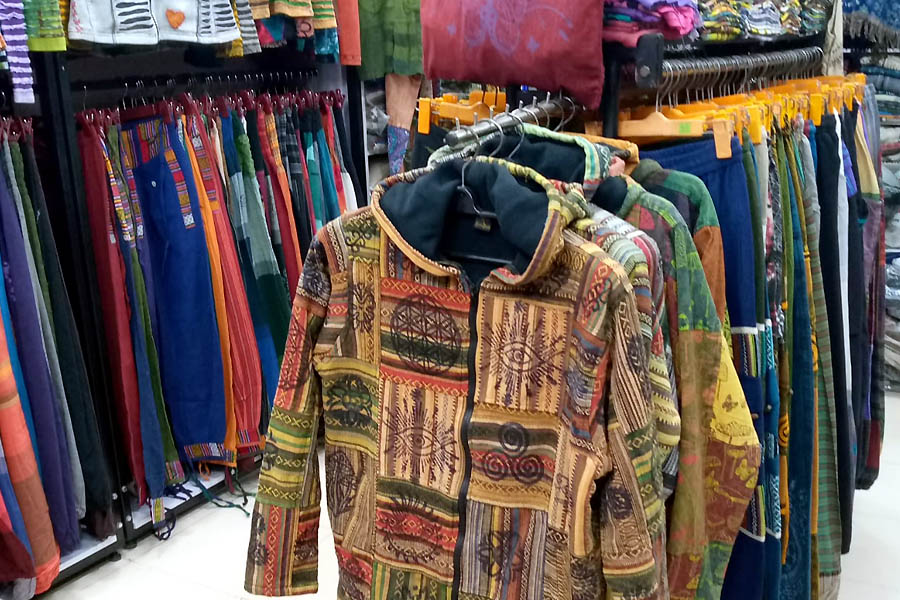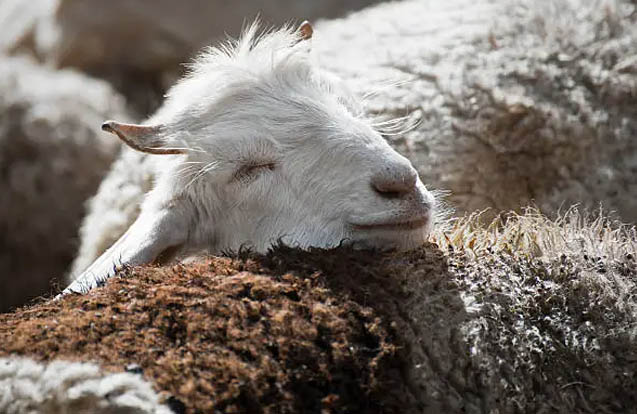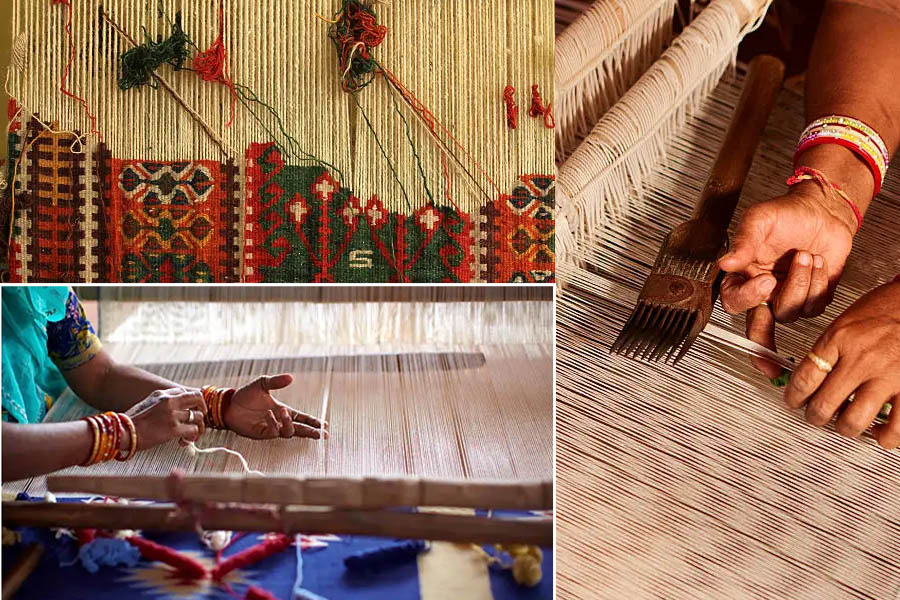
Garments Nepal - Leading Clothing Manufacturer and Exporter
10-Oct-2024Nepal has long been celebrated for its vibrant culture, breathtaking landscapes, and a rich heritage of handcrafted goods. Among the nation's many specialties, the garment industry stands out, seamlessly blending traditional artistry with contemporary techniques to produce a diverse range of clothing that caters to both local and international markets. Garments Nepal, in particular, excels in creating handmade Bohemian, Hippie, and Boho-style clothing that resonates with fashion enthusiasts worldwide.
The Garment Manufacturing Process in Nepal
The foundation of Nepalese garment manufacturing lies in the country's age-old weaving and textile-making traditions. Numerous factories and workshops across Nepal, especially in Kathmandu, integrate handcrafting with modern machinery to ensure the production of high-quality garments. The workforce comprises skilled artisans who inherit and perpetuate generations-old textile knowledge, ensuring each piece is crafted with precision and care.
The manufacturing journey begins with the meticulous selection of raw materials such as cotton, hemp, wool, and silk. These materials are then woven or knitted into fabric, dyed using eco-friendly methods, and finally tailored into exquisite garments. Garments Nepal prides itself on adhering to sustainable and ethical manufacturing practices, appealing to environmentally conscious buyers who value quality and responsibility.
Popular Categories of Nepalese Garments
- Bohemian Clothing: Characterized by loose-fitting, comfortable designs with vibrant colors, often enhanced with intricate embroidery or unique prints.
- Hippie Dresses: Embracing freedom and artistic expression, these dresses are a favorite among the free-spirited.
- Boho Jackets and Hoodies: Crafted from wool or cotton, these garments are both stylish and functional, ideal for cooler climates.
- Woolen Garments: Renowned for their warmth and softness, products like shawls and sweaters are handmade with exceptional craftsmanship.
- Hemp Backpacks and Bags: Utilizing sustainable and durable hemp fabric, these accessories are perfect for eco-conscious consumers.
Wholesale and Export Opportunities
Nepal's garment sector has garnered significant international attention, with companies like Garments of Nepal, Logo Fashion Industry, and Thread Garment leading the charge. These manufacturers export large quantities of Nepali garments to Europe, North America, Australia, and beyond, establishing Nepal as a key player in the global fashion industry.
Focusing on wholesale production, Garments Nepal offers businesses the opportunity to place bulk orders of customized products. This capability has opened avenues for collaborations with global fashion brands, retailers, and online stores. The Garment Premier Exporter of Nepal plays a crucial role in supporting these manufacturers by facilitating platforms for international trade and export opportunities, further enhancing Nepal's presence in the global market.
The Appeal of Ethical Fashion
In an era where ethical and sustainable fashion is gaining momentum, Nepali garments fit seamlessly into this global movement. The reliance on natural fibers, handmade production processes, and sustainable practices like natural dyeing and hand-weaving make these garments attractive to buyers who prioritize environmental responsibility and fair working conditions.
Supporting local artisans, investing in eco-friendly products, and choosing garments produced under ethical standards have become significant factors driving the popularity of Nepali garments. This trend not only boosts Nepal’s reputation as a leader in ethical fashion but also contributes to the socio-economic development of local communities.
Additional Benefits of Choosing Garments Nepal
- Customization: Tailor-made solutions to meet specific design and quality requirements.
- Competitive Pricing: Affordable rates without compromising on quality.
- Timely Delivery: Efficient production schedules ensuring on-time delivery.
- Quality Assurance: Strict quality control processes to maintain high standards.
- Sustainable Practices: Commitment to eco-friendly manufacturing processes.
Q&A Section
Q: What sets Nepali garments apart from others in the market?
A: Nepali garments are distinguished by their unique blend of traditional craftsmanship and modern fashion trends. The use of eco-friendly materials, intricate handcrafted details, and vibrant colors contribute to their distinct Bohemian and Hippie styles, making them highly sought after in global markets.
Q: What materials are primarily used in Nepali garment manufacturing?
A: The primary materials include cotton, hemp, wool, and silk. Many manufacturers prioritize locally sourced and sustainable fabrics to ensure quality and environmental responsibility.
Q: How does the wholesale process work with Garments Nepal?
A: Wholesale orders involve bulk production where manufacturers customize designs based on the buyer's specifications. Garments Nepal is equipped to handle large orders while maintaining high standards of craftsmanship and quality.
Q: Are Nepali garments produced sustainably?
A: Yes, many Nepali garments are produced using sustainable practices such as natural dyeing, hand-weaving, and the use of eco-friendly materials like hemp and organic cotton. The industry is committed to minimizing its environmental impact.
Q: How can international buyers connect with Nepali garment manufacturers?
A: International buyers can connect through online platforms, trade fairs, and by collaborating directly with associations like the Garment Association of Nepal. Many manufacturers also maintain an online presence, facilitating easier communication and trade relationships.
Q: What are the most popular garments exported from Nepal?
A: Popular exports include Bohemian dresses, woolen jackets, Boho-style hoodies, and hemp bags. These items are favored for their unique designs and sustainable production methods.
Q: Can orders be customized when purchasing from Nepali garment manufacturers?
A: Absolutely! Many manufacturers offer customization services, allowing buyers to request specific colors, fabrics, and designs to meet their market or personal preferences.
Q: What certifications do Nepali garment manufacturers hold?
A: Many Nepali garment manufacturers hold certifications such as ISO 9001 for quality management, OEKO-TEX for textile safety, and Fair Trade certifications ensuring ethical labor practices.
Q: What is the minimum order quantity (MOQ) for wholesale purchases?
A: The MOQ varies depending on the product and customization requirements. Garments Nepal typically works with buyers to determine suitable quantities that meet their needs.
Q: How does Garments Nepal ensure the quality of its products?
A: Garments Nepal employs rigorous quality control processes at every stage of production, from material selection to final inspection, ensuring that each garment meets high standards of quality and craftsmanship.
Garments Nepal embodies the perfect fusion of traditional Nepali craftsmanship and modern fashion sensibilities. With a commitment to sustainability, ethical manufacturing, and exceptional quality, Garments Nepal stands as a world-class leader in the clothing wholesale and manufacture industry. Whether you're a retailer seeking unique Bohemian styles or a fashion enthusiast looking for handcrafted excellence, Garments Nepal offers unparalleled solutions to meet your needs.
Get in Touch with Garments Nepal Today!
Ready to elevate your fashion line with our exquisite Nepali garments? Contact Nepal Art Shop to discuss your requirements and place your wholesale order.
Tags: "Embrace the timeless elegance of Nepal’s handcrafted garments, where tradition meets sustainability, creating fashion that tells a story." #NepalGarments 🇳🇵👗 #HandmadeFashion ✋🧵 #WholesaleClothing 🏷️👚 #EthicalFashion 🌱👜 #SustainableStyle 🌍👖 #NepaliCrafts 🎨👕 #GlobalFashion 🌐👗 #TextileTreasure 🧶💎 #TraditionalMeetsModern 🏔️✨ #ClothingWholesale 🌸👗
Thank you for reading: Globalpostheadline.com





